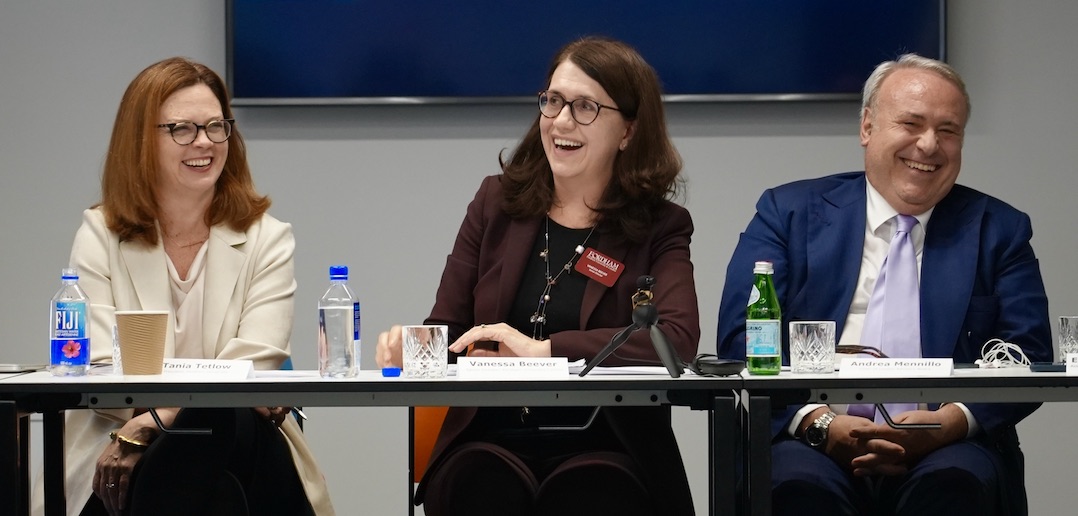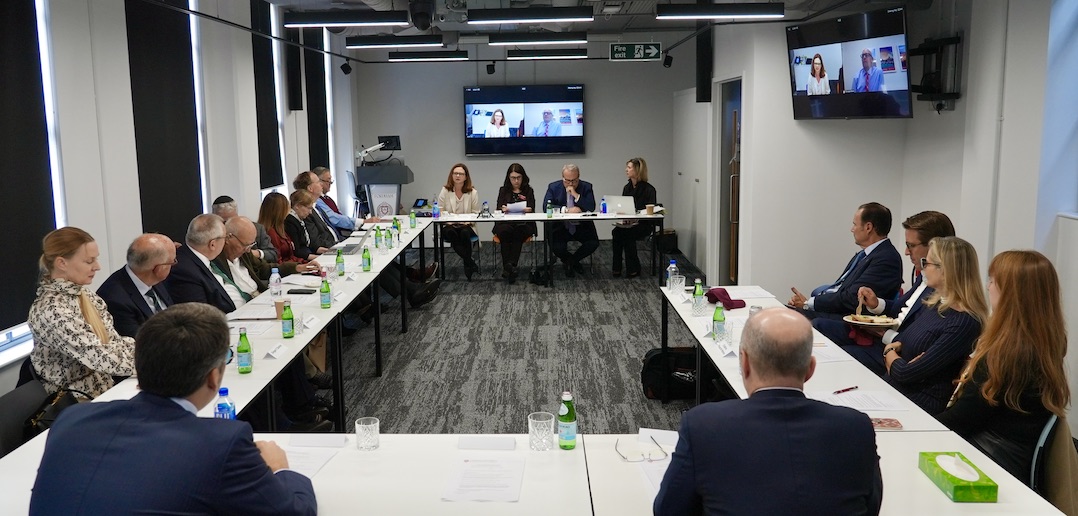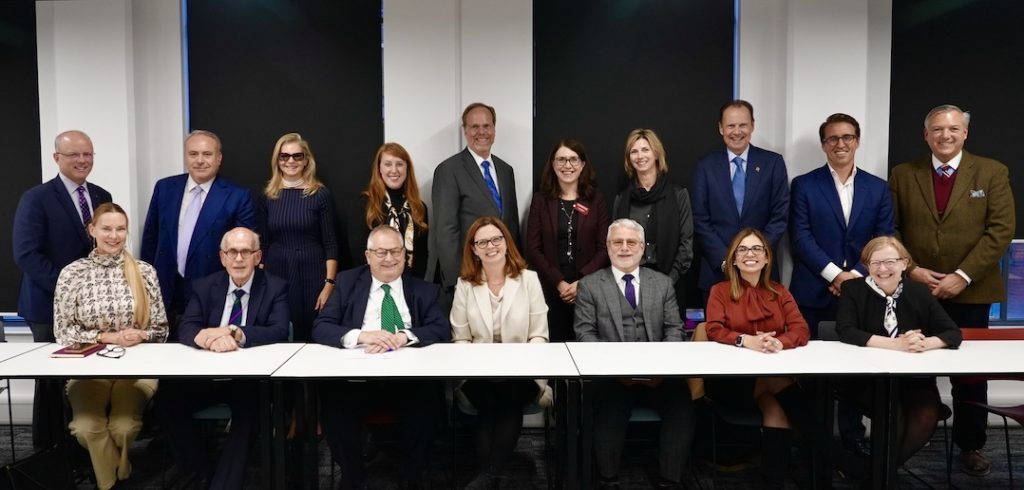“We need to make our students’ education truly global,” Tetlow said to the board members. “They need to understand how to function in a global economy, develop cultural competences, and think beyond the neighborhood they grew up in.”
Tetlow attended the Oct. 27 meeting of the Fordham London Advisory Board, which also welcomed Armando Nuñez Jr., chair-elect of Fordham’s Board of Trustees; Dennis Jacobs, Ph.D., provost and senior vice president for academic affairs; Ellen Fahey-Smith, Ed.D., associate vice president in the Office of the Provost; Maura Mast, Ph.D., dean of Fordham College at Rose Hill; Lerzan Aksoy, Ph.D., interim dean of the Gabelli School of Business; Anthony Davidson, Ph.D., dean of the School of Professional and Continuing Studies; Roger Milici Jr., vice president for development and university relations; Michael Griffin, associate vice president for alumni relations; and Joseph Rienti, director of international and study abroad programs. The group’s last board meeting took place this past summer at the London campus, before Tetlow stepped into office.
A President with a Global Mission
Fordham’s newly inaugurated president formally introduced herself to the London Advisory Board as someone who had been raised to appreciate the beauty of global travel. She said her family spent what little money they had on exploring the world. Her mother is a polyglot who can speak 10 languages, while her uncle Joseph Tetlow, S.J., has visited every Jesuit community in the world. Both family members showed her how to see the world through a different lens.

Tetlow said that Fordham has a global mission, too. It’s important to not only continue to draw international students to Fordham, but also to give our students a global education that helps them understand how to think beyond their hometown, said Tetlow, who previously served as associate provost for international affairs at Tulane University.
Nuñez, who was a senior executive in the global media industry for more than two decades, echoed Tetlow’s thoughts. Expanding Fordham’s global footprint is a must, he said, adding that the University needs to utilize its “incredible asset” in London to a greater degree and expand its presence in the United Kingdom.
Enhancing the Fordham London Student Experience
In a nearly three-hour meeting led by Andrea Mennillo, Ph.D, chair of the Fordham London Advisory Board, the team of administrators explored ways to give Fordham London students a richer experience abroad, enhance Fordham’s reputation as a global brand, and develop new programs that further Fordham’s Jesuit mission and global vision.
Rienti noted that student enrollment at the London campus is currently high. During the coronavirus pandemic, all study abroad programs were suspended for about a year and a half, but enrollment at Fordham London has recovered, he said. (In the 2019 academic year, there was a total of 492 students. This academic year, there are 468 students.)
Beever reported that Fordham London will welcome John J. Cecero, S.J., vice president for mission integration and ministry, and Julie Gafney, Ph.D., executive director of the Center for Community Engaged Learning, this November. Father Cecero and Gafney will seek out connections and collaborations that further Fordham’s mission and develop community engagement opportunities for students to help them learn and grow outside the formal curriculum.
Aksoy and Mast co-presented a PowerPoint presentation with potential ideas for strengthening the undergraduate study abroad experience. They suggested developing and piloting an anchor course to support students’ transition to London, including a reflective component in which students articulate goals and expectations. They are also exploring restarting and restructuring the internship program in London to further deepen the immersive study abroad experience. Aksoy, Mast, and Davidson noted successful collaborations with other institutions and described ways to build and strengthen University-wide global partnerships with other institutions of higher education as well as corporations. Aksoy and Davidson spoke of potential opportunities to develop innovative executive education programs in a range of formats, combining research and real-world experience. Davidson noted a unique advantage in leveraging Fordham’s international relationships and providing students with the opportunity to take courses in multiple geographical locations as well as online.

Recommendations for Business and STEM Students
Aksoy offered some specific recommendations for business students. She suggested a new sophomore London cohort who can participate in a real-world consulting experience where students work together to solve business challenges facing companies in London. In addition, she mentioned restarting and expanding the London Speaker Series, Business Perspectives From Europe, which is currently being worked on by the new head of experiential learning in London, Ergem Şenyuva Tohumcu.
Mast, a mathematician, suggested building more research opportunities for STEM students studying abroad. There are few STEM students who study abroad due to the rigorous nature of their studies, said Mast, but there are opportunities to partner with institutions in the United Kingdom.
More research is needed to understand the best way forward, said the administrators, but they are excited for the future of Fordham London.
“I am feeling excited and fulfilled,” said Mennillo, “because we are here to support students on their path toward their professional life.”

